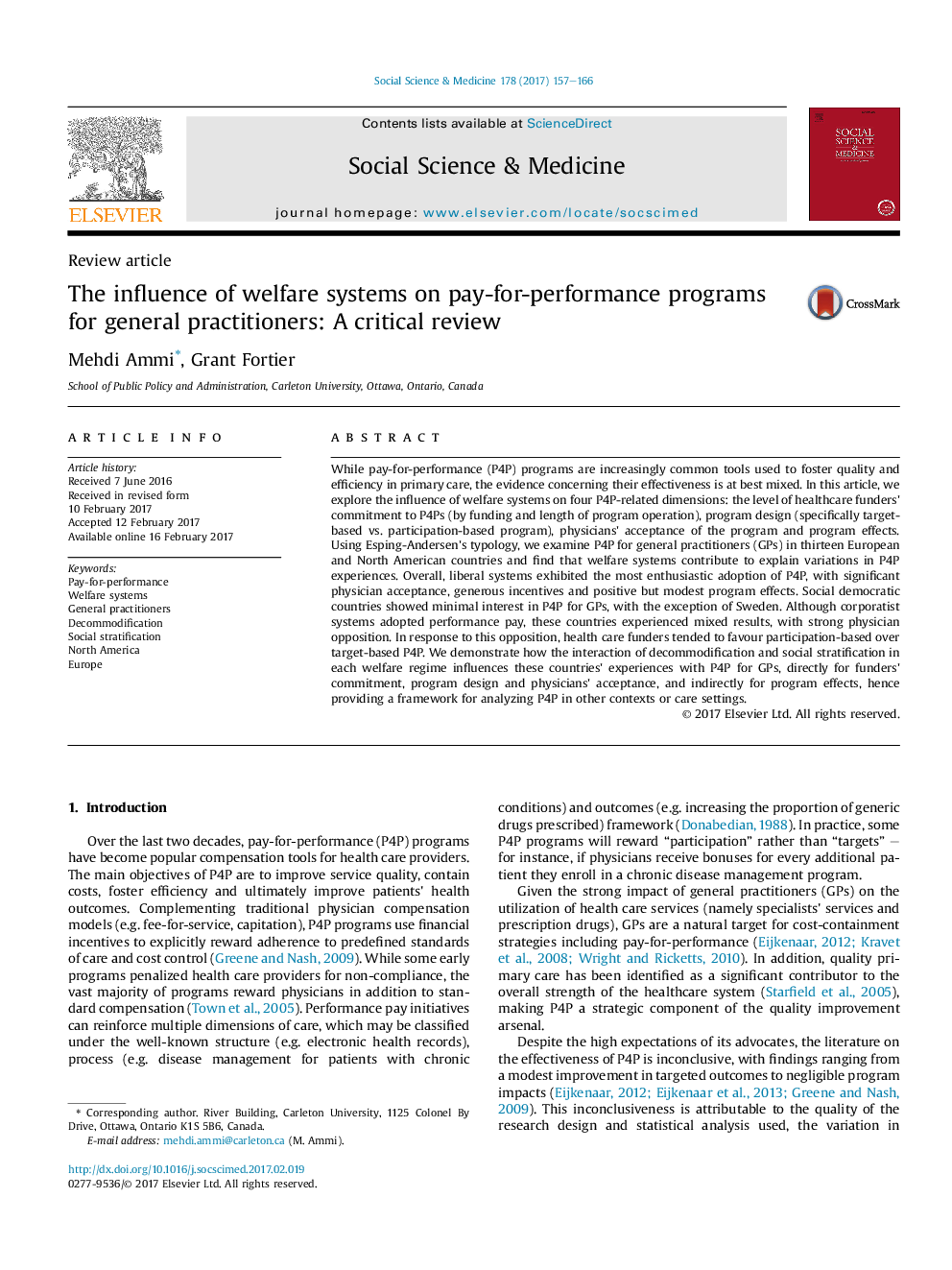| کد مقاله | کد نشریه | سال انتشار | مقاله انگلیسی | نسخه تمام متن |
|---|---|---|---|---|
| 5046646 | 1475991 | 2017 | 10 صفحه PDF | دانلود رایگان |
- This study bridges the social policy and physician payment literature.
- Welfare systems explain variation in experiences with pay-for-performance.
- Liberal systems make enthusiastic use of pay-for-performance (P4P).
- Social democratic systems have minimal interest in P4P for general practitioners.
- Opposition in corporatist systems results in participation-based P4P.
While pay-for-performance (P4P) programs are increasingly common tools used to foster quality and efficiency in primary care, the evidence concerning their effectiveness is at best mixed. In this article, we explore the influence of welfare systems on four P4P-related dimensions: the level of healthcare funders' commitment to P4Ps (by funding and length of program operation), program design (specifically target-based vs. participation-based program), physicians' acceptance of the program and program effects. Using Esping-Andersen's typology, we examine P4P for general practitioners (GPs) in thirteen European and North American countries and find that welfare systems contribute to explain variations in P4P experiences. Overall, liberal systems exhibited the most enthusiastic adoption of P4P, with significant physician acceptance, generous incentives and positive but modest program effects. Social democratic countries showed minimal interest in P4P for GPs, with the exception of Sweden. Although corporatist systems adopted performance pay, these countries experienced mixed results, with strong physician opposition. In response to this opposition, health care funders tended to favour participation-based over target-based P4P. We demonstrate how the interaction of decommodification and social stratification in each welfare regime influences these countries' experiences with P4P for GPs, directly for funders' commitment, program design and physicians' acceptance, and indirectly for program effects, hence providing a framework for analyzing P4P in other contexts or care settings.
Journal: Social Science & Medicine - Volume 178, April 2017, Pages 157-166
